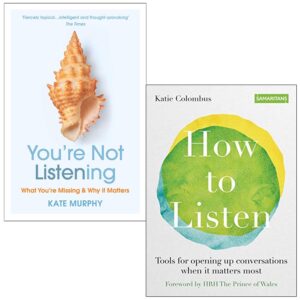The Art of Listening
The Art of Active Listening: Unlock Professional Success and Personal Growth
Introduction
In today’s fast-paced, digitally-driven world, active listening is often overlooked. Yet, it’s a skill that can transform your professional and personal life. Whether you’re a manager, coworker, or someone preparing for an interview, active listening can be your secret weapon for success.
Why Does Active Listening Matter?
Active listening is more than just hearing words; it’s about understanding the complete message being sent. By not fully listening, you risk missing out on valuable insights, creating misunderstandings, and losing opportunities to connect on a deeper level. In a professional setting, these missed opportunities can be costly. #CommunicationSkills
What is Active Listening?
Active listening involves not just hearing the words, but also picking up on non-verbal cues like tone, pace, and body language. It’s about being fully present in the conversation and engaging with empathy and curiosity. #Empathy #NonVerbalCues
The Importance in the Workplace
Active listening is crucial in the workplace for several reasons:
- Team Collaboration: It fosters a culture of respect and openness.
- Conflict Resolution: It helps in resolving issues more effectively.
- Innovation: It encourages the sharing of new ideas.
- Better Meetings: It ensures meetings are more productive and focused.
- Positive Collaboration: It drives teamwork in a constructive direction. #Teamwork #Innovation #BetterMeetings
12 Tips for Becoming an Expert Listener
- Be Attentive: Put distractions away and focus on the speaker.
- Stop Judging: Approach conversations with an open mind.
- Avoid Assumptions: Don’t pre-judge the outcome of the conversation.
- Maintain Eye Contact: Keep your focus on the speaker.
- Don’t Interrupt: Wait for natural pauses to ask questions.
- Ask Open-Ended Questions: For example, instead of asking, “Did you like the project?” ask, “What were your thoughts on the project?” This encourages more thoughtful responses.
- Don’t Rush to Solve: Sometimes, listening is more valuable than offering a quick fix.
- Listen to the How, Not Just the What: Pay attention to the speaker’s tone and body language.
- Embrace Silence: Allow space for the speaker to think and speak.
- Clarify and Confirm: Make sure you’ve understood correctly.
- Provide Feedback: Show that you understand and appreciate the speaker’s point of view.
- Take Notes Later: Focus on the conversation first and jot down notes afterwards. #ListeningTips
Book Recommendation: You’re Not Listening by Kate Murphy

Want to level up your listening skills and unlock the power of curiosity? Check out ‘You’re Not Listening’ on Audible. Trust me, it’s a game-changer. Click here to listen now! (AF Link)
For those looking to dive deeper into the art of listening, I highly recommend Kate Murphy’s book “You’re Not Listening.” This book can help you:
- Be a Better Manager and Coworker: Learn how to build trust and foster a more collaborative work environment.
- Identify Areas for Improvement: Gain insights into your own behaviour and discover ways to improve.
- Prepare for Interviews: Equip yourself to answer questions about feedback and handling difficult situations effectively.
Example – Behavioral Interview Questions to identify listening skills
- “Can you describe a situation where you had to rely on your active listening skills to solve a problem?”
- This question aims to assess your ability to listen, understand, and act upon information effectively. It also evaluates your problem-solving skills and how well you can adapt based on what you’ve heard.
- “Tell us about a time when you received feedback that you disagreed with. How did you handle it?”
- This question is designed to understand how well you listen to feedback, even when it’s contrary to your own beliefs or opinions. It also gauges your ability to maintain a professional demeanor and work constructively with others.
These questions test your listening skills, emotional intelligence, and ability to collaborate. Preparing for these can give you a significant edge in your interviews.
Conclusion
Active listening is an ongoing skill that requires practice and commitment. Whether you’re in a managerial role, working with a team, or preparing for job interviews, mastering this skill can set you apart. So why not start today? Book a free consultation call with me, and let’s work on enhancing your listening skills together.
Note: The book link is an affiliate link, which means I may earn a small commission at no extra cost to you if you make a purchase.
Further Reading Recommendation: How to be a great listener, even on video calls
#PersonalDevelopment #ActiveListening #ProfessionalGrowth #FAANG #InterviewPreparation
Professional Development – Learn on the go
…want unlimited access to thousands of books you can listen to on the go? Why not try out Audible? Get your 30-day free audible trial here, and experience the joy of listening to the best in business over the next 30 days for free.
